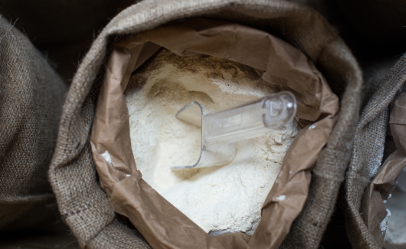General Mills Inc. and federal officials have been working together to account for recalled flour that has been linked to an E. coli outbreak and that was sent to food producers in addition to retailers and restaurants.  Neither the company nor government has included information about the flour sent to food producers in published recall or outbreak notices. General Mills recalled 10 million pounds of flour Tuesday after the Centers for Disease Control and Prevention (CDC) informed the company the flour had been linked to an E. coli outbreak that has been going on since December 2015. Both General Mills and the U.S. Food and Drug Administration confirmed for Food Safety News this week that some of the recalled flour had been sent in bulk to food producing companies. “Yes, and they have been notified of the recall,” General Mills spokesman Mike Siemens said when asked whether the recalled flour was sold to food producers, bakeries, etc., or used in other General Mills products, such as baking mixes. “We are not aware of it being used in any dry mixes,” Siemens said, but he did not provide comment on any other kinds of products. A spokeswoman for the FDA’s Office of Foods and Veterinary Medicine said the agency’s Coordinated Outbreak Response and Evaluation (CORE) Network did not include information in its outbreak notice about the flour sent to food producers because it would not have had meaning for the general public. “FDA worked with General Mills to directly notify their bulk customers and facilitate the recall. This information is not included in the CORE posting because consumers would not be able identify the bulk General Mills products because they are not sold in stores,” FDA’s Evelyn Pereira said in an email. Pereira said the agency could not comment on the likelihood of secondary recalls for products that may have been produced with the recalled flour, which was mostly produced in General Mills’ facility in Kansas City, MO. “FDA cannot speculate about future recalls, but we will work with any downstream customers in facilitating potential recalls or other actions,” Pereira said. If the flour was used by producers for foods that are not baked or otherwise cooked before sale to consumers — such as raw cookie dough, pizza dough or pie crusts — there could be secondary recalls in the works. Raw cookie dough from the Nestle Co. was linked to a 2009 E. coli O157:H7 outbreak that sickened 77 people across 30 states. Nestle recalled 3.6 million packages of chocolate chip cookie dough. After the outbreak, the company started heat treating flour to kill pathogens before it is used in Nestle products. Outbreak and investigations then and now A CDC epidemiologist who helped trace the current 20-state E. coli O121 outbreak to General Mills’ flour also worked on the 2009 E. coli outbreak investigation that was ultimately linked to the flour in Nestle’s cookie dough.
Neither the company nor government has included information about the flour sent to food producers in published recall or outbreak notices. General Mills recalled 10 million pounds of flour Tuesday after the Centers for Disease Control and Prevention (CDC) informed the company the flour had been linked to an E. coli outbreak that has been going on since December 2015. Both General Mills and the U.S. Food and Drug Administration confirmed for Food Safety News this week that some of the recalled flour had been sent in bulk to food producing companies. “Yes, and they have been notified of the recall,” General Mills spokesman Mike Siemens said when asked whether the recalled flour was sold to food producers, bakeries, etc., or used in other General Mills products, such as baking mixes. “We are not aware of it being used in any dry mixes,” Siemens said, but he did not provide comment on any other kinds of products. A spokeswoman for the FDA’s Office of Foods and Veterinary Medicine said the agency’s Coordinated Outbreak Response and Evaluation (CORE) Network did not include information in its outbreak notice about the flour sent to food producers because it would not have had meaning for the general public. “FDA worked with General Mills to directly notify their bulk customers and facilitate the recall. This information is not included in the CORE posting because consumers would not be able identify the bulk General Mills products because they are not sold in stores,” FDA’s Evelyn Pereira said in an email. Pereira said the agency could not comment on the likelihood of secondary recalls for products that may have been produced with the recalled flour, which was mostly produced in General Mills’ facility in Kansas City, MO. “FDA cannot speculate about future recalls, but we will work with any downstream customers in facilitating potential recalls or other actions,” Pereira said. If the flour was used by producers for foods that are not baked or otherwise cooked before sale to consumers — such as raw cookie dough, pizza dough or pie crusts — there could be secondary recalls in the works. Raw cookie dough from the Nestle Co. was linked to a 2009 E. coli O157:H7 outbreak that sickened 77 people across 30 states. Nestle recalled 3.6 million packages of chocolate chip cookie dough. After the outbreak, the company started heat treating flour to kill pathogens before it is used in Nestle products. Outbreak and investigations then and now A CDC epidemiologist who helped trace the current 20-state E. coli O121 outbreak to General Mills’ flour also worked on the 2009 E. coli outbreak investigation that was ultimately linked to the flour in Nestle’s cookie dough. 

Sponsored by Marler Clark
